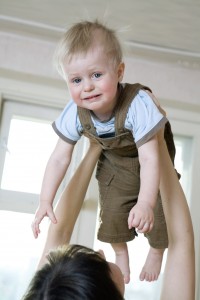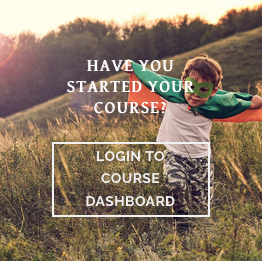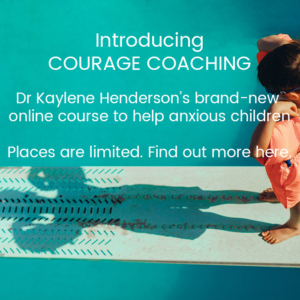The Use of Distraction in Parenting
 Look at the sky and please don’t cry!
Look at the sky and please don’t cry!
‘Quick! Look at the plane! In the sky!! LOOK UP THERE!! QUICK!!!!!’
Have you ever seen someone try to distract a child when he’s hurt or upset? Or tried the same technique yourself in an act of desperation? Often people think that distraction is the quickest way to calm a distressed child but in fact, research reveals just the opposite. It seems that by not acknowledging our children’s hurts or providing comfort we can inadvertently make their distress last much longer.
Not convinced? Then imagine this scenario:
You arrive home after a stressful day, topped off by an enraged tailgating driver with his hand seemingly glued to his car horn. You walk into the kitchen ready to disappear into the comforting embrace of your partner while you have a good whinge about the state of the world. Sensing your distress as you approach, your partner suddenly morphs into Captain Cheerful and instructs you to quickly look around the room for five things that start with the letter ‘P’. Hmmm…
Not only would this make you feel extremely confused but it would do nothing to ease your distress. Not like if he had just spent a few minutes looking appropriately dismayed on your behalf. In fact, if you were frequently met with this incongruous response you would learn that there was no point turning to your partner at all when you were feeling upset. None of us want our children to assume this of us. We want just the opposite. We want our children to learn that they can come to us no matter what.
That’s not to say that distraction has no place in the parenting toolkit. In my experience, it’s the perfect tactic to employ when your toddler is running in the direction of your mother’s good china. But the next time you’re tempted to point to the sky in an attempt to relieve your child’s hurts, stop. Squat down to his level, mirror his facial expression and say,
‘Gee, it looks like you’re feeling pretty sad. How about a cuddle?’.
Because in the end, that’s what really makes everything better.
*For simplicity, children are referred to using masculine pronouns (‘he’/‘him’) in this article, although the information equally applies to girls.
Dr Kaylene Henderson is passionate about sharing practical, research based advice to help you feel more calm and confident while raising kind, resilient and socially and emotionally healthy children.
And here for the corresponding course series for early childhood professionals, Raising Good Kids: Managing Behaviour and Emotions in Early Childhood Care and Education Settings.


